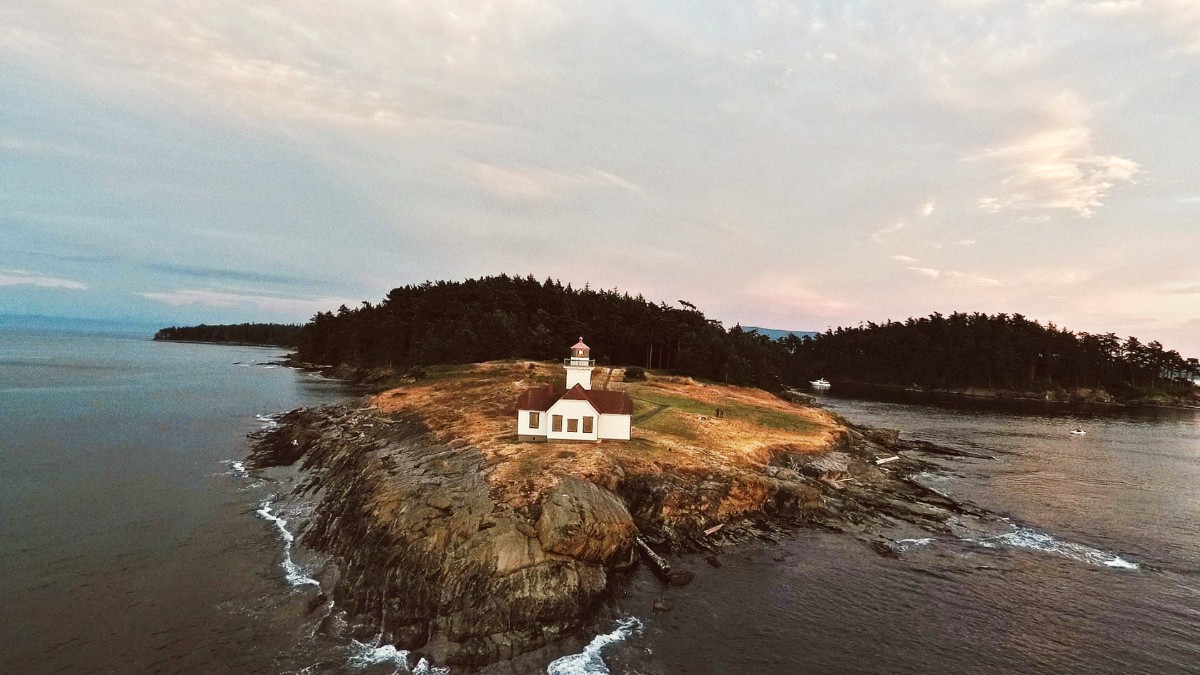
Washington, USA
Climate Patterns Throughout the Year:
Spring (April-May): Temperatures typically range from 45°F (7°C) to 60°F (16°C). Precipitation decreases from winter, with occasional rain showers. Sunny days become more frequent.
Summer (June-August): This period provides the warmest and driest conditions. Temperatures generally range from 55°F (13°C) to 75°F (24°C), occasionally reaching 80°F (27°C). This is the sunniest time of year.
Autumn (September-October): Temperatures range from 45°F (7°C) to 65°F (18°C). Precipitation begins to increase, but the air is crisp, and changing foliage creates beautiful scenery.
Winter (November-March): This is the coolest and wettest period. Temperatures typically range from 35°F (2°C) to 50°F (10°C). Frequent rain, some fog, and occasional light snow, specifically at higher elevations like Mount Constitution, characterize this season.
The San Juan Islands receive significantly less precipitation than Seattle due to the rain shadow effect, making them a drier Pacific Northwest destination. Fog can be common, especially in spring and fall mornings.
High winds can occasionally lead to ferry delays or cancellations, specifically in winter. Travelers plan for varied conditions by packing layers, regardless of the season.
No visa applies for U.S. Citizens. A valid government-issued identification, like a state-issued Driver's License or ID card, a U.S. Passport, or a U.S. Military ID, is sufficient for domestic travel and lodging. Keeping important documents organized in a Passport holder may be helpful.
Visa Waiver Program (VWP) Countries: Citizens of VWP countries can travel to the U.S. for tourism or business for stays of 90 days or less without a visa. They obtain an approved Electronic System for Travel Authorization (ESTA) prior to departure. ESTA applications are submitted online through the official U.S. Customs and Border Protection (CBP) website. Apply well in advance of your trip.
Non-VWP Countries: Citizens of countries not participating in the VWP obtain a B-2 (tourist) visa. The application process typically involves completing Form DS-160 online, paying the application fee, and attending an interview at a U.S. Embassy or Consulate in their home country. This process can take several weeks or months.
Must remain valid for at least six months beyond your planned departure date from the United States.
As applicable to your nationality.
Proof of intent to leave the U.S. May be requested by immigration officials.
Evidence of sufficient funds to cover the duration of your stay. This might include bank statements or credit card limits.
No special permits are generally needed for standard tourism or public access.
No specific entry fees apply for the San Juan Islands beyond standard travel costs. Immigration procedures occur at your first port of entry into the U.S., like Seattle-Tacoma International Airport (SEA). Prepare to answer questions about your trip's purpose, duration, and accommodation plans. Customs declarations apply for goods brought into the country.
No specific health-related entry requirements currently apply for general entry into the United States. Travelers confirm their routine vaccinations are up-to-date as recommended by their national health authorities.
Travel insurance is highly recommended for unexpected medical emergencies, trip cancellations, or interruptions. Policies should cover medical evacuation. Consider providers like World Nomads or SafetyWing. Review policy details carefully to confirm coverage meets your needs. For US visitors insurance, Insubuy may be an option.
The currency used is the United States Dollar (USD, $). Major credit cards are widely accepted. ATMs are available in Friday Harbor, Eastsound, and Lopez Village. Carrying some cash is advisable for smaller vendors.
Inform your bank of your travel plans to avoid issues with card usage. A Travel wallet with RFID blocking helps secure your cards and cash.
Secure Washington State Ferries reservations for your vehicle. Travel in shoulder or low season for lower rates. Pack food and snacks to reduce dining-out costs. Utilize free activities like hiking and park exploration. Cycle instead of drive. Consider camping as a budget-friendly accommodation option.
Tipping is customary for service industries. Restaurants: 15-20% for good service. Bars: $1-2 per drink or 15-20%. Tour Guides: 10-20% of tour cost. Taxi/Shuttle Drivers: 10-15%. Hotel Housekeeping: $2-5 per night.
Ferry (one-way, vehicle under 14ft): ~$25-35. Whale Watching Tour: $90 - $150 per person. Kayaking Tour: $80 - $150. Scooter Rental (24 hours): $70 - $100. Bike Rental (full day): $30 - $60. Casual Lunch: $15 - $25.
Prices can vary significantly based on travel style and season.
| Category | Budget Traveler (USD) | Mid-Range Traveler (USD) | Luxury Traveler (USD) |
|---|---|---|---|
| Accommodation | $40 - $70 (camping, hostel dorm) | $150 - $300 (mid-range hotel, B&B) | $400 - $1000+ (resort, luxury rental) |
| Meals | $30 - $50 (groceries, casual eateries) | $70 - $120 (restaurant meals, some fine dining) | $150 - $300+ (gourmet dining, private chefs) |
| Local Transport | $0 - $20 (walking, cycling, limited shuttle) | $20 - $50 (bike/scooter rental, taxi rides) | $50 - $100+ (private transfers, multiple rentals) |
| Activities | $10 - $40 (hiking, free parks, museum entry) | $50 - $150 (whale watching tour, kayaking rental) | $200 - $500+ (private boat tour, spa day) |
| Miscellaneous | $10 - $20 (snacks, small souvenirs) | $20 - $40 (coffees, local crafts) | $50 - $100+ (boutique shopping, unique experiences) |
| Total Daily Cost | $90 - $180 | $310 - $610 | $850 - $2000+ |